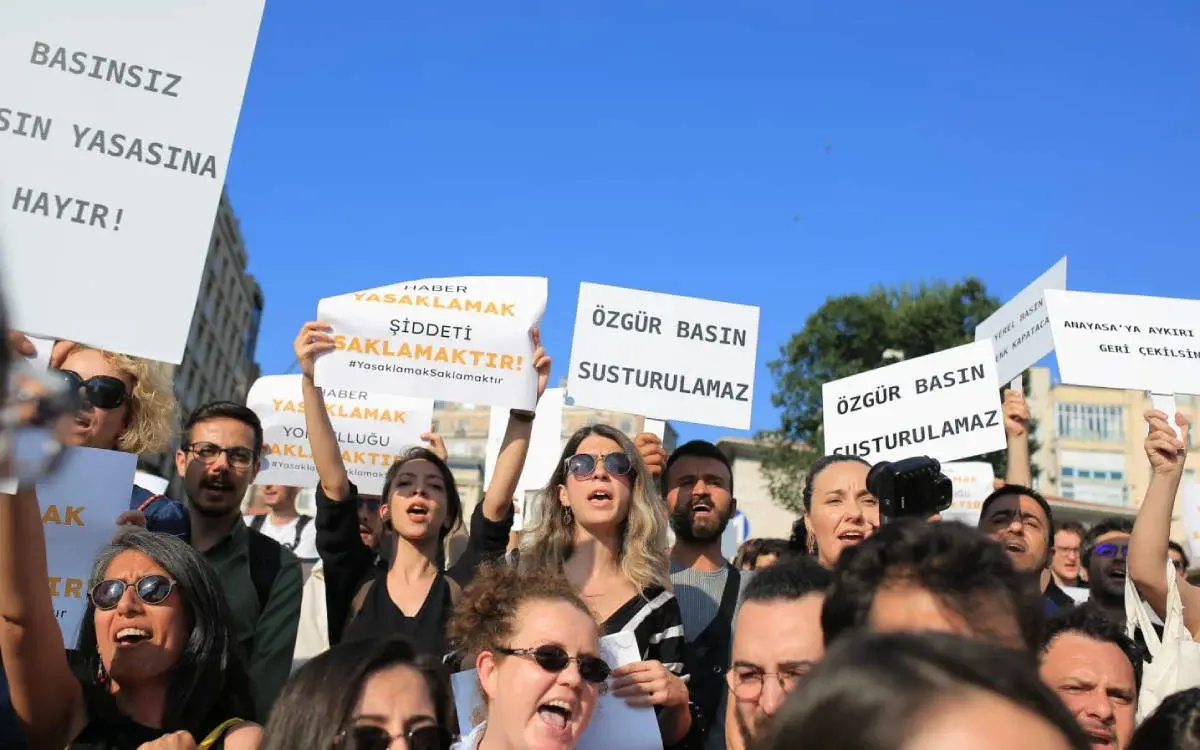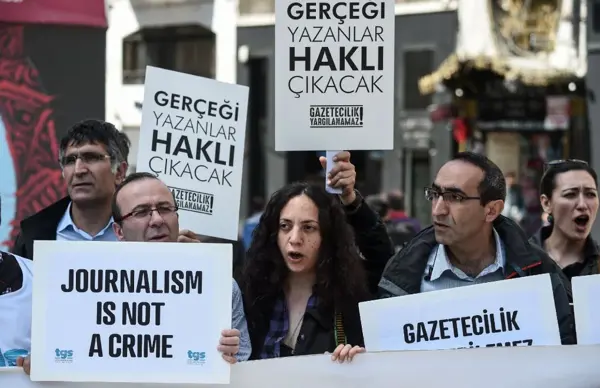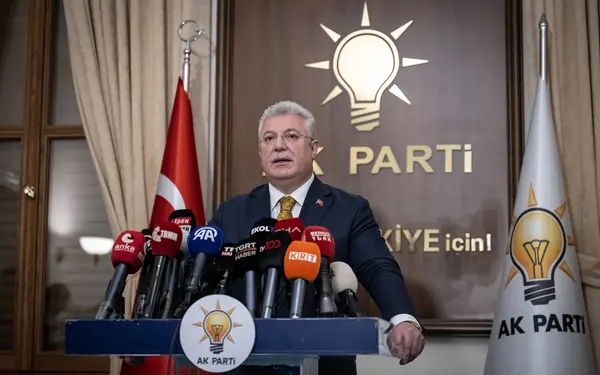The parliament is set to begin discussions on the "agents of influence" bill, a measure that the government claims is needed to counter "new types of espionage," while opposition and civil society warn it contains vague language that could restrict freedom of expression and lead to witch hunts.
Faruk Çayır, head of the Alternative Informatics Association and a lawyer, views this bill as the latest attempt by the ruling AKP to silence opposition voices in Turkey, following previous measures implemented since 2020.
The last of these measures, he explained, was the October 2022 “disinformation law,” which criminalized the spread of “publicly misleading information.” Despite warnings that this law could be used against journalists, it was passed, and many journalists have been prosecuted under this charge since then. Now the agents of influence bill will have the same effect, he said.
The government initially introduced the bill in June, but it was withdrawn from an omnibus package following strong opposition from journalism and freedom of expression groups.
‘No clear definition’
Çayır described the new bill as harsher than the disinformation law and criticized it for its potential to shift according to political preferences. “We saw the same problem with the disinformation law. There was no clear definition of the offense or its justification. We said, ‘If you create a law without clarifying it, this means you can prosecute anyone.’ Now the AKP has taken this even further.
“Despite being a legal provision, the bill lacks a proper technical and legal framework. “They talk about agents of influence, but what is an agent of influence? Nobody knows what it means or what it involves.”
Noting that the bill falls under a section related to “crimes against state secrets and espionage,” he added, “What is the state’s internal or external political interest? Who are the ‘foreign organizations’? What exactly are these strategic interests? None of these questions have answers. Yet, the penalty is three to seven years in prison.”
‘Covering European court rulings could become an offense’
Çayır also highlighted terms in the bill that lack definition, such as “foreign organization” and “internal or external political interest,” using the European Court of Human Rights (ECHR) as an example.
“Let’s say the ECtHR rules in favor of Selahattin Demirtaş and finds Turkey in violation of the European Convention on Human Rights. A journalist reporting on this decision could easily be accused of harming the state’s ‘internal or external political interest’ and labeled an agent of influence.”
Çayır gave another example: “Imagine you report on a child’s murder and uncover political connections. Could prosecutors charge you, saying you’re accusing our politicians, our ministers, under the pretext of ‘internal interest’? Yes, they could. This bill could be used to file cases against anyone whose reporting is deemed contrary to political interests.”
Regarding “strategic interest,” Çayır commented, “How will people know what the state's strategic interests are? Does Turkey publish a strategic interests document for citizens to follow? It lacks a foundation. They can label anything as a strategic interest.” He argued that the bill serves as a step to make all media pro-government, and criticized the way laws are currently drafted in Turkey: "Turkey has become a country of omnibus bills. Look at the law being discussed—it's related to notaries. Yet, within it is a clause on agent of influences.”
“Even committee discussions have lost meaning,” Çayır noted. “It’s impossible to change the government’s stance. No amendments are allowed. You point out that a term lacks definition, and they say, ‘In our view, it’s fine,’ and pass it."
Çayır asserted that not every law introduced by the AKP is harmful but added, “They continue to pass any measure that serves their interests, silences dissent, controls social media, or hinders free expression. There’s no end to it. The AKP keeps raising the level of restrictions.”
Citing regulations on social media and disinformation since 2020, he noted, “If you look at the trajectory, the goal is clear: to eliminate freedom of expression.”
According to Çayır, the real question is the direction Turkey will take in terms of law and democracy. “Will it turn towards Europe or continue on a Middle Eastern trajectory? If we’re part of the European Commission, we must act in accordance with the European Convention on Human Rights. Otherwise, it’s us who will pay the price.”
Proposed article 339/A of the Turkish Penal Code
1. Anyone who commits a crime in alignment with the strategic interests or instructions of a foreign state or organization, against the security of the state or its internal or external political interests, shall be sentenced to three to seven years in prison. The offender shall be sentenced for both this crime and any other relevant crime committed.
2. If committed during wartime, or in a way that endangers the state's war preparations, activities, or military operations, the offender shall face eight to twelve years in prison.
3. If committed by those serving in positions of strategic national security within institutions handling important projects, facilities, or services, the sentence shall be doubled.
4. Prosecution of this offense is subject to the permission of the Minister of Justice.
(HA/VK)



















